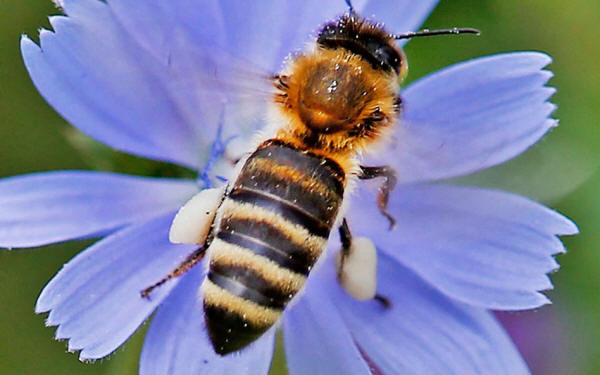|

by Sarah Knapton
May 18, 2018
from
TheTelegraph Website

Electromagnetic radiation
may
damage bird's ability to navigate
Credit:
Keith Morris / Alamy Live News
Electromagnetic radiation from,
...poses a 'credible'
threat to wildlife, a new report suggests, as environmentalists
warned
the 5G roll out could cause greater harm.
An analysis of 97 studies by the EU-funded review body EKLIPSE
(The
Impacts of Artificial Electromagnetic Radiation on Wildlife - Flora
and Fauna)
concluded that radiation
is a potential risk to insect and bird orientation and plant health.
However the charity
Buglife
warned that despite good evidence of the harms there was
little research ongoing to assess the impact, or apply pollution
limits.
The charity said
'serious impacts on the environment could not be ruled out' and
called for 5G transmitters to be placed away from street lights,
which attract insects, or areas where they could harm wildlife.
Matt Shardlow, CEO of Buglife said:
"We apply
limits to all types of pollution to protect the habitability of
our environment, but as yet, even in Europe, the safe limits of
electromagnetic radiation have not been determined, let alone
applied.
"There is a credible risk that 5G could impact significantly on
wildlife, and that placing transmitters on LED street lamps,
which attract nocturnal insects such as moths increases exposure
and thereby risk.
"Therefore we call for all 5G pilots to include detailed studies
of their influence and impacts on wildlife, and for the results
of those studies to be made public."

Buglife
called for 5G transmitters
to be moved away from
street lights
where insects are
drawn
As of March, 237 scientists have signed an appeal to
the United
Nations asking them to take the risks posed by electromagnetic
radiation more seriously.
The
EKLIPSE
report found that the magnetic orientation of birds, mammals
and invertebrates such as insects and spiders could be disrupted by
Electromagnetic Radiation
(EMR).
It also found
established that plant metabolism is also altered by EMR.
The authors of the
review conclude that there is,
"an urgent need to strengthen the
scientific basis of the knowledge on EMR and their potential impacts
on wildlife."
"In particular,
there is a need to base future research on sound, high-quality,
replicable experiments so that credible, transparent and easily
accessible evidence can inform society and policy-makers to make
decisions and frame their policies."
|



